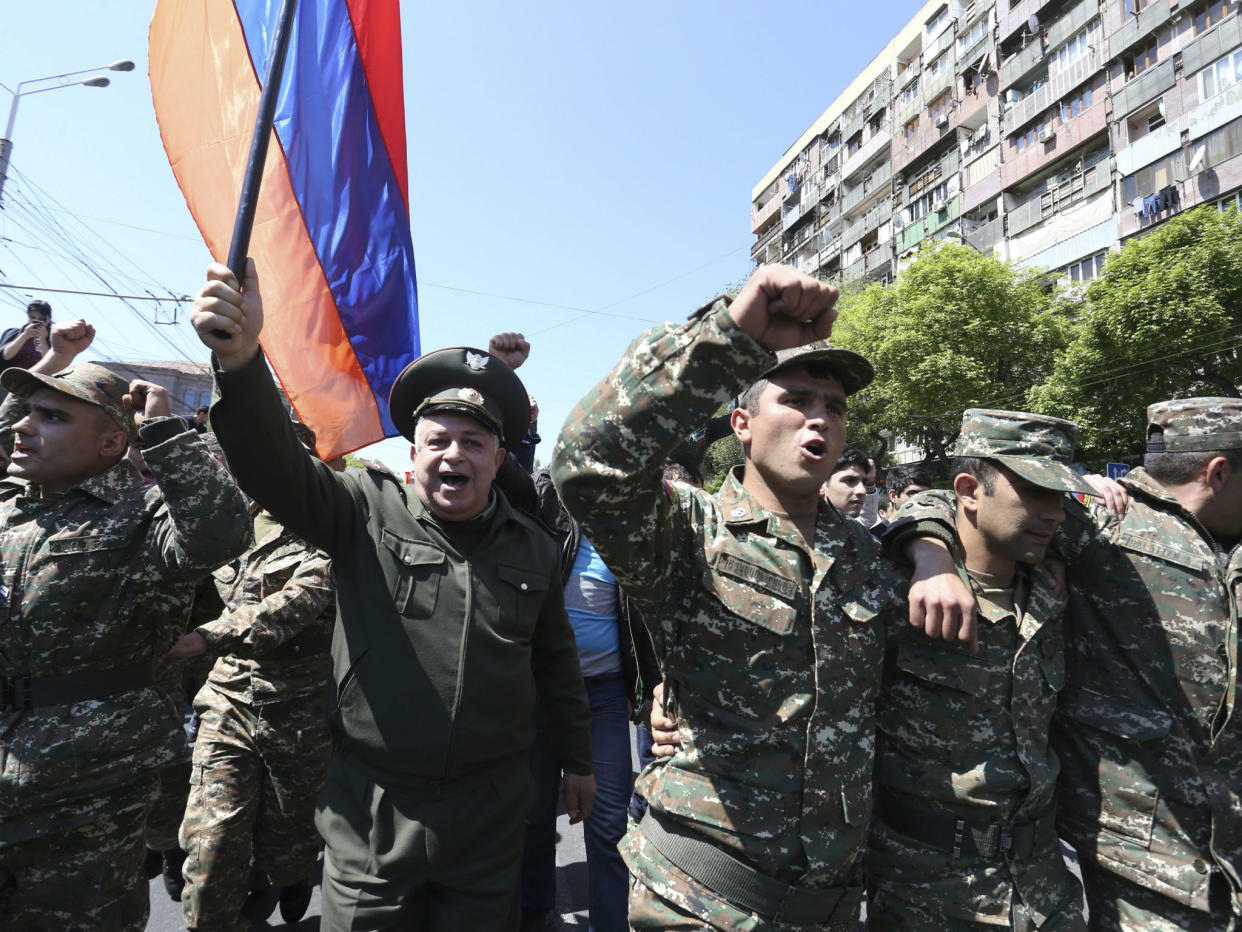Armenia looks to the future as protesters celebrate resignation of Prime Minister Serzh Sargsyan

Armenian Prime Minister Serzh Sargsyan has resigned after more than two weeks of mass protests, bringing celebration to the streets of capital Yerevan and beyond.
Mr Sarksyan, a close ally of Russian President Vladimir Putin, had served as Armenia's president for a decade until this month and had faced accusations of clinging to power when parliament elected him as prime minister - with no other candidates given a chance - in the wake of the end of his presidential term.
Under a revised constitution, with amendments having been approved in 2015, the prime minister now holds the power with the presidency reduced to a largely ceremonial role. The nomination of Mr Sarksyan to the position by his ruling Republican party sparked the protests, which began on 13 April and grew in number.
The participants of the non-violent protests were mostly young people – students and school pupil who had no fear of those in power. Their spirit was being transferred to elder family members as the protests grew by the day. When unarmed soldiers in the capital Yerevan joined the anti-government protests on Monday, pressure on Mr Sarksyan increased.
“I got it wrong,” Mr Sarksyan said in a statement. “In the current situation there are several solutions, but I won't choose any of them. It's not my style. I am quitting the country's leadership and the post of prime minister of Armenia.”
Tens of thousands filled the capital's central Republic Square, waving national flags, blowing vuvuzelas and chanting:“Victory!”
The level of protest seemed to take Mr Sarksyan and his government by surprise, with the prime minister likely unaware of the fact that one of the more popular games for children had become something called "reject Serzh".
Mr Sarksyan mentioned in his statement a leading figure of the protests, Nikol Pashinyan. His "Civil contract” party has four seats out of 105 in Armenian National Assembly and is one of three others in the "Way out" opposition alliance.
“The first stage of our revolution is over - prime minister has resigned,” Mr Pashinyan said to the crowd in Republic Square.
Mr Sarksyan had met Mr Pashinyan in Yerevan on Sunday but left talks a few minutes after their talks began. The same day police also detained Mr Pashinyan, two other opposition leaders and nearly 200 protesters, drawing a rebuke from the European Union. Police released Mr Pashinyan and others on Monday.
Without Mr Sarksyan's resignation, pressure would likely have built further still with the country holding events it calls the 'Day of Commemoration of Armenian Genocide' on Tuesday, marking the killing of 1.5m Armenians from 1915 onwards. Hundreds of thousands of people would be involved with events and it was likely to have turned into a mass anti-Sarksyan demonstration. Such an event would have been unthinkable to suppress by any use of force.
Instead there is jubilation. “It's the happiest day in my life,” 20-year-old student Karine Stepanyan, told Reuters. “We showed to the entire world that our country's destiny is in hands of Armenian people.”
Former Armenian prime minister Karen Karapetyan, an ally of Mr Sarksyan from his Republican Party, has been named as acting prime minister after President Armen Sarkissian accepted the resignation of Mr Sarksyan and his government.
Armenia's parliamentary parties now have seven days to put forward the name of a new prime minister. Mr Sarksyan's allies remain in key positions in the government and the future remains unclear, but Mr Pashinyan said he would he was holding out hope that the protest movement would be recognised.
“We are ready to continue talks with acting prime minister Karen Karapetyan on Wednesday to ensure a transfer of power to the people,” Mr Pashinyan said.
“I hope that the high echelons of the Republican Party will unequivocally recognise the popular velvet and non-violent revolution,” he said.
Agencies contributed to this report

 Yahoo News
Yahoo News 
